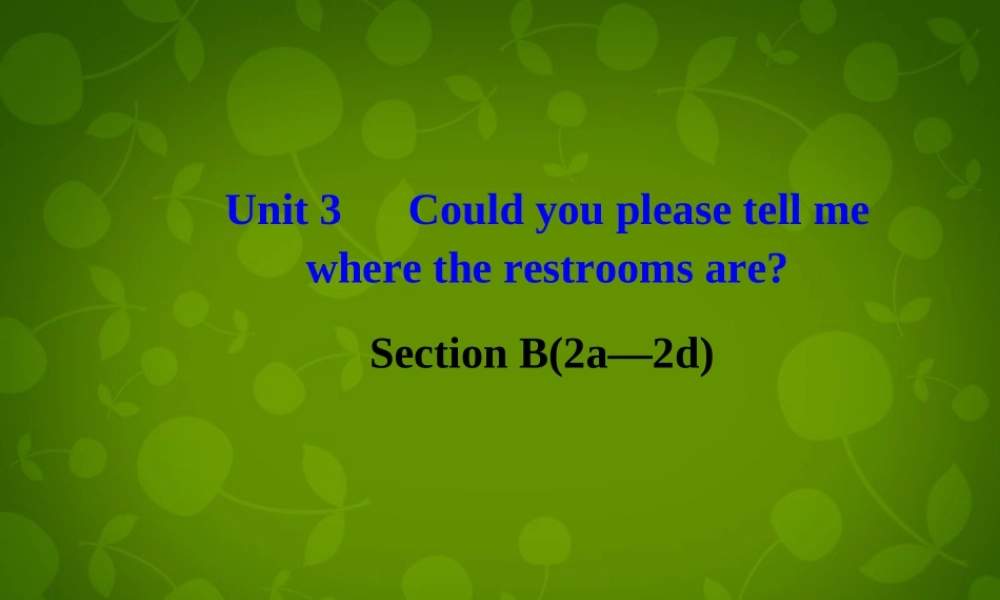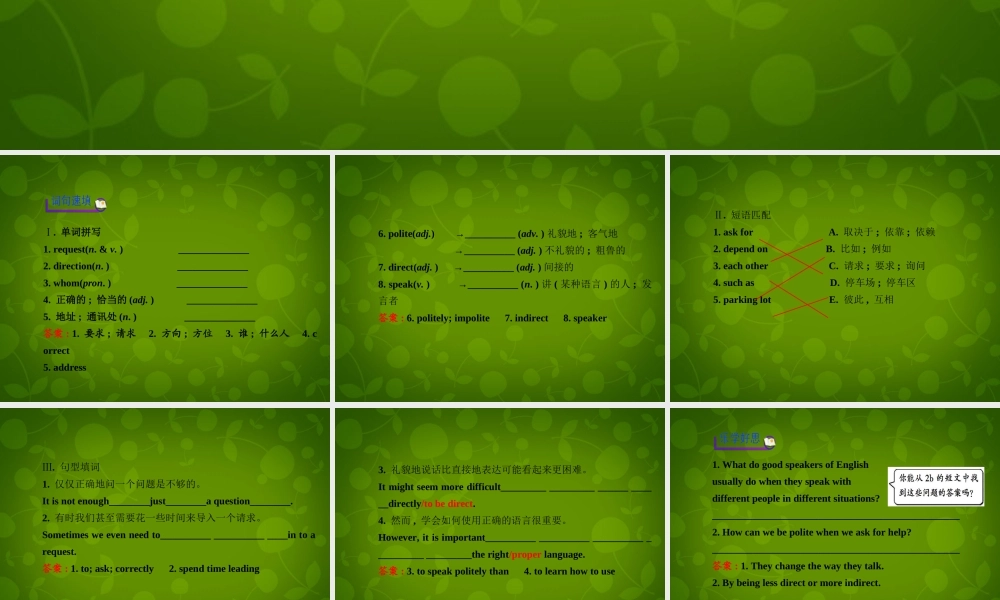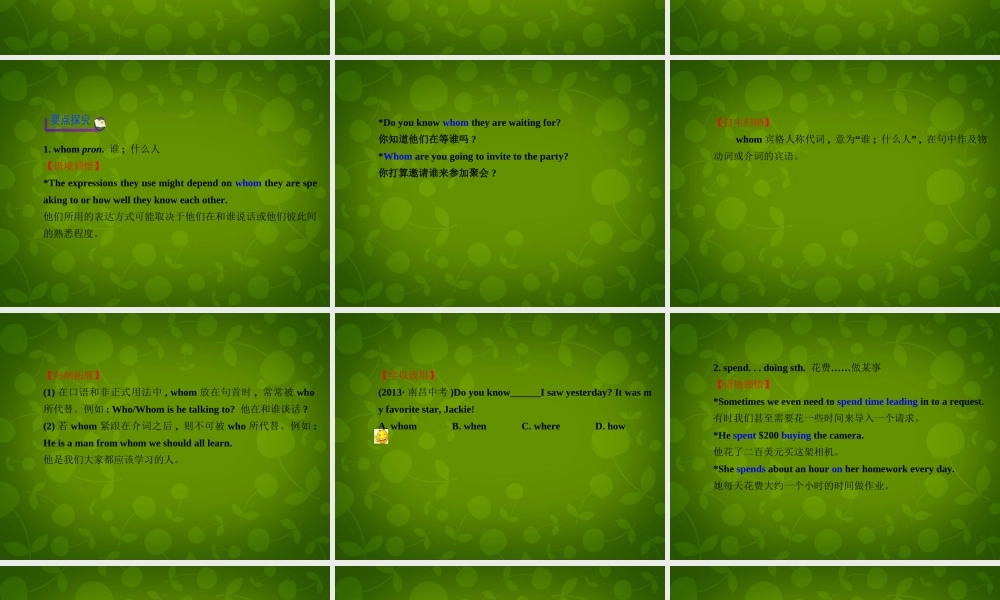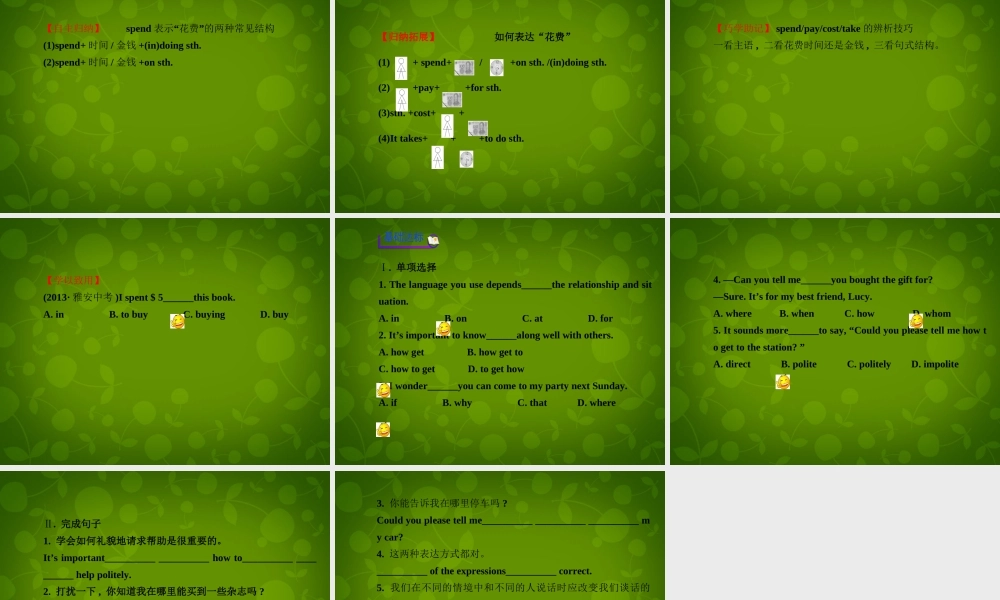Unit 3 Could you please tell mewhere the restrooms are?Section B(2a—2d) Ⅰ. 单词拼写1. request(n. & v. ) ______________2. direction(n. ) ______________3. whom(pron. ) ______________4. 正确的 ; 恰当的 (adj. ) ______________5. 地址 ; 通讯处 (n. ) ______________答案 : 1. 要求 ; 请求 2. 方向 ; 方位 3. 谁 ; 什么人 4. correct5. address 6. polite(adj.) →__________ (adv. ) 礼貌地 ; 客气地 →__________ (adj. ) 不礼貌的 ; 粗鲁的7. direct(adj. ) →__________ (adj. ) 间接的8. speak(v. ) →__________ (n. ) 讲 ( 某种语言 ) 的人 ; 发言者答案 : 6. politely; impolite 7. indirect 8. speakerⅡ. 短语匹配1. ask for A. 取决于 ; 依靠 ; 依赖2. depend on B. 比如 ; 例如3. each other C. 请求 ; 要求 ; 询问4. such as D. 停车场 ; 停车区5. parking lot E. 彼此 , 互相Ⅲ. 句型填词1. 仅仅正确地问一个问题是不够的。It is not enough________just________a question________. 2. 有时我们甚至需要花一些时间来导入一个请求。Sometimes we even need to__________ __________ ____in to a request. 答案 : 1. to; ask; correctly 2. spend time leading3. 礼貌地说话比直接地表达可能看起来更困难。It might seem more difficult_________ _________ ______ ______directly/to be direct. 4. 然而 , 学会如何使用正确的语言很重要。However, it is important__________ __________ __________ __________ _________the right/proper language. 答案 : 3. to speak politely than 4. to learn how to use1. What do good speakers of Englishusually do when they speak with different people in different situations? _________________________________________________2. How can we be polite when we ask for help? _________________________________________________答案 : 1. They change the way they talk. 2. By being less direct or more indirect. 1. whom pron. 谁 ; 什么人【语境领悟】*The expressions they use might depend on...




